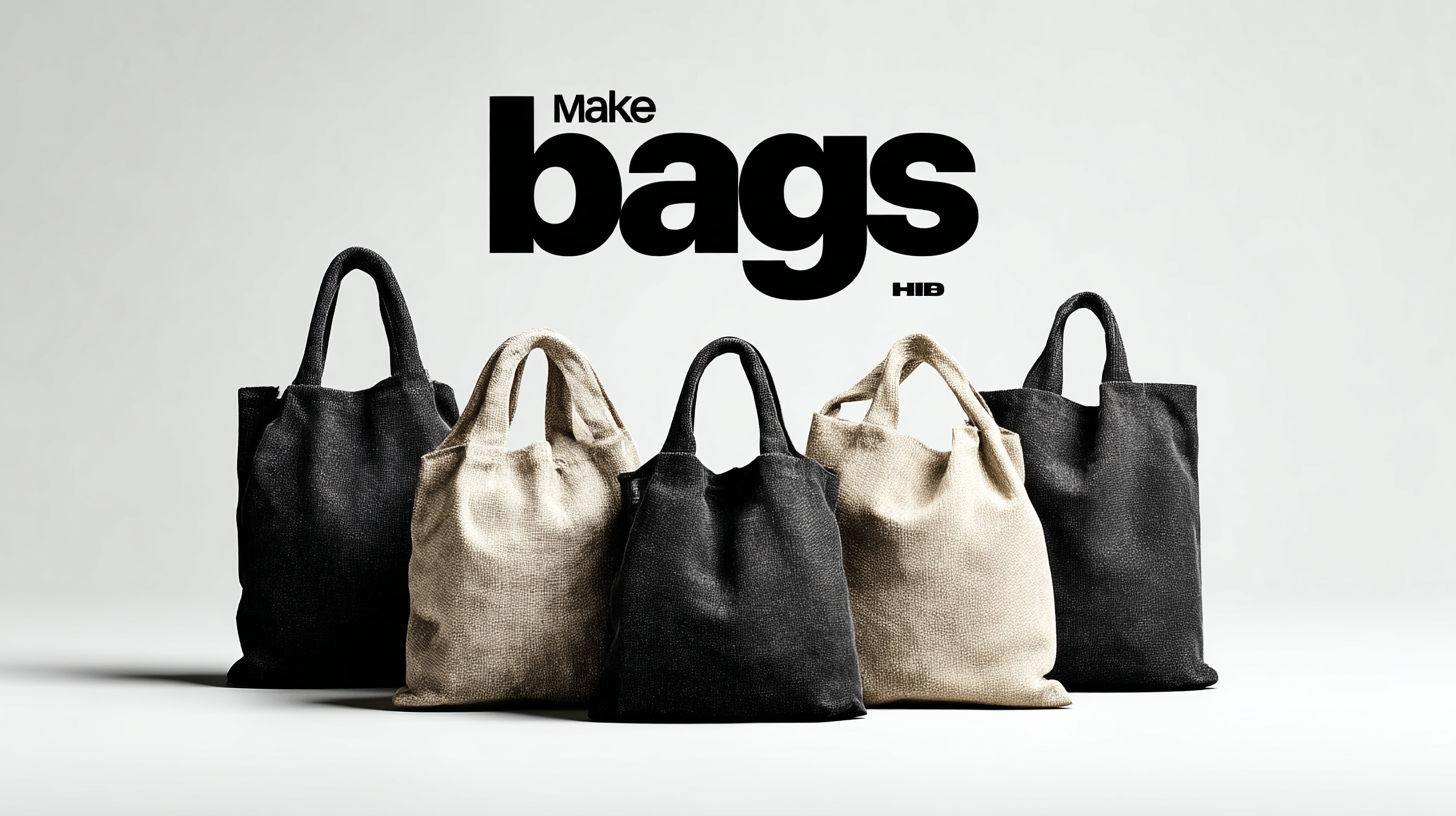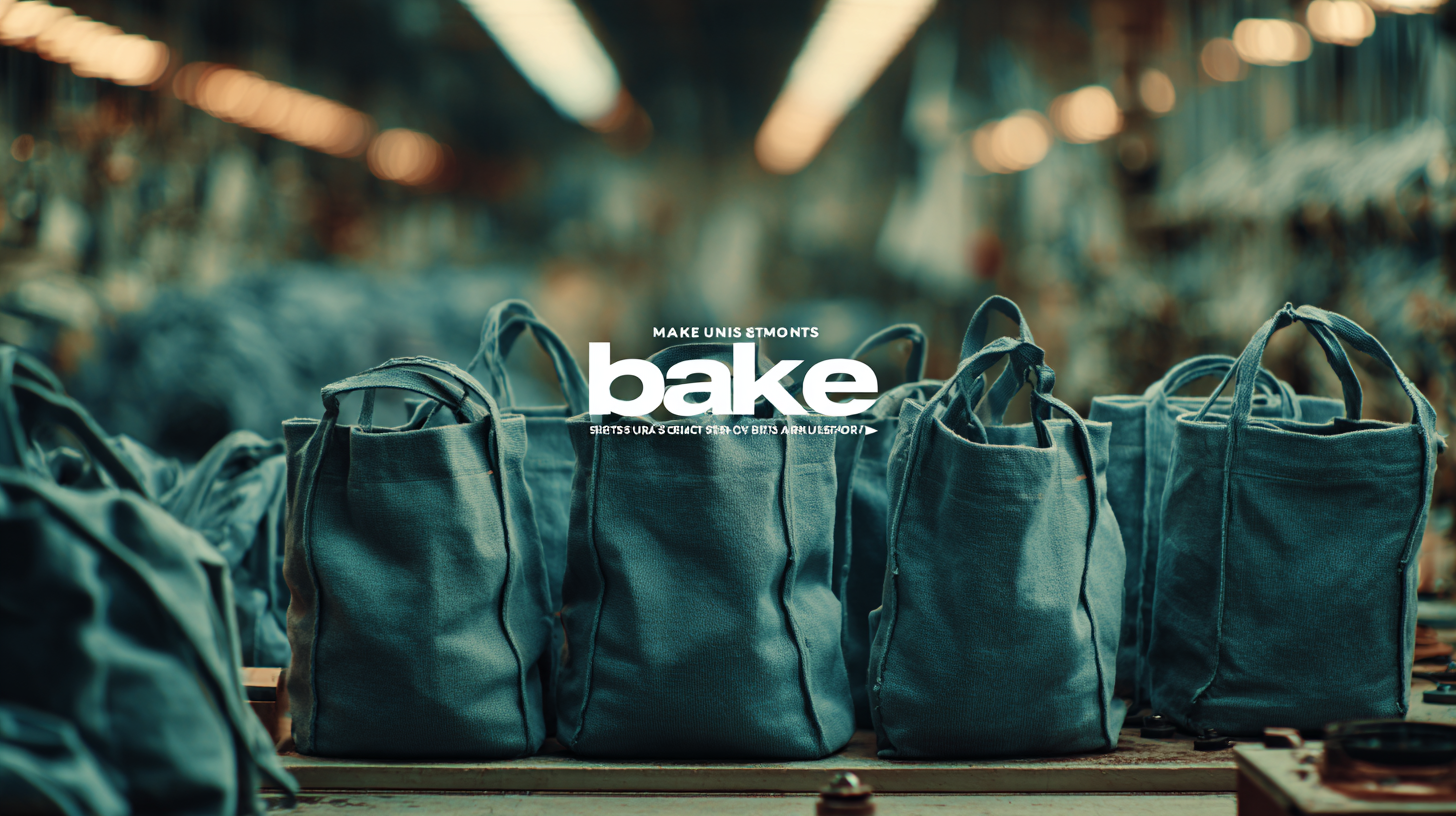In the ever-evolving landscape of global commerce, the demand for high-quality Make Bags continues to rise, driving industry leaders to adhere to stringent manufacturing standards. This blog explores the critical role of industry standards in the production of Make Bags, emphasizing their importance to global buyers who seek reliability, durability, and sustainability in their purchases. By understanding these standards, businesses and consumers alike can ensure they are making informed decisions when sourcing products from world-class factories in China, renowned for their exceptional manufacturing capabilities.

The insights presented will highlight why these benchmarks not only elevate product quality but also foster trust and transparency in the marketplace, ultimately benefiting all stakeholders involved.
In the realm of make bags, adherence to industry standards has become increasingly critical for global buyers. According to a recent report by the Bags Manufacturers Association, approximately 70% of international clients prioritize compliance with specific material and safety standards when selecting suppliers. This emphasizes the necessity for manufacturers to align their products with established guidelines, such as the ISO 14021 for environmental labeling and GREENGUARD certification for low chemical emissions.

Furthermore, a survey conducted by the International Bag Association revealed that products meeting these standards not only enhance marketability but also significantly reduce liability risks. In fact, 65% of buyers reported a preference for suppliers who can demonstrate commitment to quality standards. This bond between compliance and consumer trust underscores the importance of understanding and implementing current industry standards, ensuring that manufacturers can satisfy a growing demand for sustainable and safe products while maintaining a competitive edge in the global market.
The landscape of make bags is evolving rapidly, driven by technological advancements that promise to reshape the industry by 2025. Innovations in material science, particularly the development of sustainable, biodegradable fabrics, are at the forefront of this transformation. These advanced materials not only reduce environmental impact but also enhance the durability and aesthetic appeal of make bags, catering to the growing demand for eco-friendly products among global buyers.
Furthermore, automation and smart manufacturing techniques are revolutionizing production processes, leading to increased efficiency and reduced costs. With the integration of artificial intelligence and machine learning, brands can now personalize make bags to meet specific consumer preferences, creating a more engaging shopping experience. These technological advancements are not just improving product quality; they are also setting new industry standards that global buyers are increasingly recognizing as essential for maintaining competitiveness in the market. As we approach 2025, the synergy of sustainability and technology will undoubtedly play a pivotal role in shaping the future of make bags.

In the competitive landscape of the make bag industry, adherence to global quality standards is paramount for ensuring product integrity and buyer trust. Understanding and implementing best practices for compliance not only enhances the quality of the bags produced but also opens doors to a wider market. Several key standards, such as ISO certifications and environmental regulations, play a crucial role in shaping product specifications and manufacturing processes.
One essential tip for manufacturers is to conduct regular audits of their production processes. This helps identify any discrepancies with established standards and allows for timely corrections. Additionally, investing in employee training on quality management systems ensures that everyone involved in production understands the importance of compliance and is equipped with the know-how to maintain those standards.
Moreover, collaborating with certified suppliers can significantly streamline compliance efforts. By sourcing materials from trusted vendors who meet global standards, manufacturers can reduce risks associated with non-compliance and increase the overall quality of their make bags. Leveraging these relationships also reinforces a commitment to sustainability, which is increasingly important for global buyers today.
The growing awareness of environmental issues has significantly influenced the make bag industry, prompting global buyers to seek sustainable alternatives. According to a recent report by the Global Sustainability Institute, the demand for bags made from recycled materials has surged by 45% in the last two years alone. As consumers become more eco-conscious, brands are increasingly prioritizing sustainability in their product offerings. This shift not only aligns with consumer values but also helps companies reduce their carbon footprints, contributing to a more sustainable future.
Sustainable materials such as organic cotton, hemp, and recycled plastics are now taking center stage in the production of make bags. A study conducted by Market Research Future predicts that the market for eco-friendly bags is expected to exceed $12 billion by 2027. The report highlights that brands adopting sustainable practices see an average sales increase of about 20% as they attract a growing demographic of environmentally-aware consumers. This trend demonstrates not only the market's responsiveness to sustainability but also its potential to drive innovation and economic growth in the sector.
Navigating industry standards is essential for global buyers seeking to make informed purchasing decisions when it comes to bags. Industry standards serve as benchmarks for quality, sustainability, and compliance, ensuring products meet both consumer expectations and regulatory requirements. For buyers, understanding these standards provides a framework to assess suppliers and products, allowing them to differentiate between high-quality and subpar offerings. This knowledge not only aids in selecting the best bags but also mitigates risks associated with poor manufacturing practices and substandard materials.
Furthermore, consumers today are increasingly aware of environmental and ethical implications. Buyers who understand industry standards can prioritize suppliers that adopt eco-friendly practices and adhere to ethical production methods. By aligning their purchasing decisions with these standards, global buyers can support sustainable practices within the industry, fostering a positive impact on both the environment and local communities. Thus, familiarizing themselves with industry certifications and regulations can empower buyers to make choices that reflect their values while ensuring they receive products that are safe and durable.
| Standard Name | Description | Importance to Buyers | Compliance Rate |
|---|---|---|---|
| ISO 9001 | Quality Management Systems | Ensures product consistency and customer satisfaction | 85% |
| ASTM D6852 | Test Method for Nonwoven Fabrics | Validates fabric quality for durability and performance | 78% |
| EN 13432 | Biodegradable Packaging | Meets environmental regulations for compostability | 65% |
| OEKO-TEX Standard 100 | Textile Safety Certification | Ensures textiles are free from harmful substances | 90% |
| BRCGS | Global Standard for Food Safety | Ensures safety and quality in food packaging | 75% |